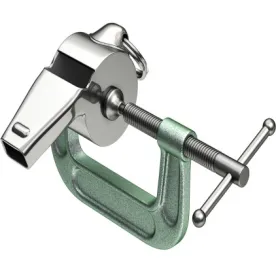A federal appeals court ruling on the Dodd-Frank Wall Street Reform and Consumer Protection Act (“DFA”) may prompt U.S. Supreme Court review as to when an employee whistleblower is entitled to the benefits of the anti-retaliation provisions of the DFA.
In a two-to-one decision, the U.S. Court of Appeals for the Second Circuit, in New York, agreeing with the Securities and Exchange Commission, said an individual’s internal company complaint was sufficient to support a claim of retaliation under the DFA, and that a complaint need not be filed only with the SEC to be protected. Berman v. Neo@Ogilvy LLC, 14-4626 (2d Cir. Sept. 10, 2015). The panel majority found the anti-retaliation provisions of the DFA to be ambiguous, and, therefore, found the SEC’s interpretation to be entitled to deference.
While the decision accords with a majority of lower court decisions, it runs counter to a ruling of the Fifth Circuit, in New Orleans, which found that the DFA statutory definition of a “whistleblower” could only be met by reporting the matter to the SEC. The conflicting rulings between the Second and Fifth Circuits may set the stage for review by the U.S. Supreme Court.
Background
Section 21F of the DFA established an incentive program for individuals who provide information to the SEC that results in successful enforcement actions by the Commission. “Whistleblower” is defined as an individual who provides information relating to a violation of securities laws to the SEC. Subsection 21F(a)(6).
Section 21F also provides for protection from retaliation for whistleblowers. It prohibits retaliation against whistleblowers who: (i) provide information to the SEC; (ii) initiate, testify, or assist in an investigation, judicial, or administrative action of the SEC based on such information; or (iii) make disclosures required or protected under the Sarbanes-Oxley Act (“SOX”). Subsection 21F(h)(1)(A).
Interpretation of DFA Anti-Retaliation Provision
The SEC, in a 2011 rulemaking, interpreted the DFA prohibition against retaliation to apply to all individuals, regardless of whether they qualified for a whistleblower award pursuant to the SEC incentive program.
Courts are divided over whether DFA’s anti-retaliation provision requires that an individual provide information to the SEC in order to qualify for the statutory protection. The majority of district courts has found Section 21F to be ambiguous and therefore gave deference to the SEC’s interpretation that permitted individuals who had no contact with the SEC to avail themselves of the DFA’s anti-retaliation protections. But some courts have held that DFA’s reference to disclosures required or protected under SOX serves as a catch-all for protected activity that would encompass only reports of securities violations made internally.
Notably, however, until now, the only circuit court to decide this issue adhered to the minority view.Asadi v. G.E. Energy (USA), L.L.C., 720 F.3d 620 (5th Cir. 2013). The Fifth Circuit held that the plain language and structure of the statute compelled the conclusion that internal communications alone were not protected under DFA. The Asadicourt concluded an individual must have provided information to the SEC (i.e., be a “whistleblower” within the meaning of Section 21F) in order to be protected from retaliation under the DFA.
Second Circuit’s Decision
In Berman, the employer argued that the complaint should be dismissed because the plaintiff had not provided any information to the SEC until after his termination, and, therefore, did not meet the definitional requirements of Subsection 21F(a)(6). The District Court agreed and dismissed the complaint.
On appeal, the Second Circuit panel majority found the language of Section 21F to be ambiguous. Moreover, it said that the SEC’s interpretation allowing those who only had complained internally to qualify for DFA’s whistleblower protection was an acceptable interpretation to resolve the ambiguity. Thus, the majority reinstated the complaint and remanded the matter to the District Court for further proceedings.
Dissent
In a strongly worded dissent, Judge Dennis Jacobs wrote that the majority’s decision altered the language of Section 21F and created a circuit split, with the Second Circuit “firmly on the wrong side of it.” Judge Jacobs found that Section 21F expressly applies “whistleblower” throughout the section and that the majority decision ignored this language in deferring to the SEC’s interpretation. He further noted that individuals who complain internally are already protected by SOX, and thus, reading Section 21F as did the majority only extends protection to a small class of new individuals, giving the statute an “extremely limited” effect.
Potential Impact
The split decision of the Second Circuit itself allows for the possibility of a petition for review by the entire Second Circuit, in an effort to overturn the panel majority decision. Absent such a change, the conflict between the circuit courts may result in a Supreme Court determination.
In the meantime, Berman presents an additional possible exposure for employers facing DFA whistleblower claims made by individuals who made only internal reports. The DFA provides for enhanced penalties compared to the SOX whistleblower provision, it does not require the plaintiff to first pursue and exhaust administrative remedies (as does SOX), and it has a much longer statute of limitations (10 years from the date of the violation as opposed to 180 days).
The DFA whistleblower provision may become a more appealing vehicle for internal whistleblowers who feel aggrieved.






 />i
/>i

